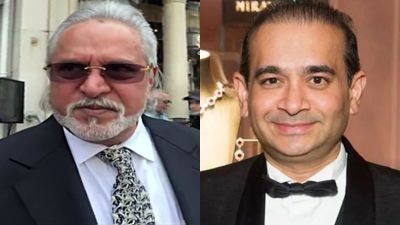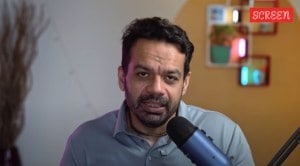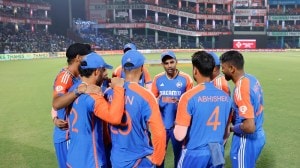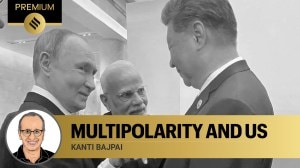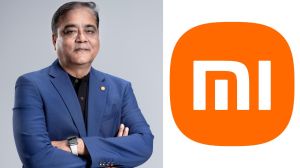As Uddhav Sena skips waqf Bill debate in House, its Muslim outreach takes a hit
Community leaders disappointed with party MPs' absence in Lok Sabha during tabling of Bill, particularly after Muslims are believed to have given unequivocal support to Sena (UBT) during the recent LS polls
 Since ditching the BJP, Uddhav has tried to offer an olive branch to the community and breaking Sena tradition, has ventured into Muslim-dominated areas. (File Photo)
Since ditching the BJP, Uddhav has tried to offer an olive branch to the community and breaking Sena tradition, has ventured into Muslim-dominated areas. (File Photo)The contentious Waqf Act amendment Bill, which was tabled last week in the Lok Sabha and subsequently sent to a Joint Committee of Parliament for scrutiny, has come to haunt the Shiv Sena (Uddhav Balasaheb Thackeray) over its ambiguous stand, especially at a time when party chief Uddhav is being seen as trying to bridge the historical wedge between his party and the Muslim community.
A group of Muslims on Sunday gathered near Matoshree, the Thackeray residence in Mumbai, to protest against the absence of Shiv Sena (UBT) MPs in the Lower House when the Bill was tabled. Even as the Shiv Sena (UBT) dismissed the protesters as “paid trolls” hired by the Shiv Sena led by Chief Minister Eknath Shinde, the party’s image has seemingly taken a beating among Muslims.
“Muslims wholeheartedly supported Uddhav in the Lok Sabha polls as he had emerged as the most favourable face of the Maha Vikas Aghadi (MVA). There was a belief that his support would make the Sena (UBT) more sensitive to the issues of the community. The Sena (UBT) MPs’ disinterest in opposing a sensitive issue like the waqf Bill is being viewed as a betrayal of the community’s new found-trust in the party,” Ahmed Kazi, a social activist from Nashik, said.
As per Sena (UBT) leaders, a meeting with Uddhav, who was in Delhi the day the Bill was tabled, resulted in their MPs giving the Lok Sabha a miss.
The Sena (UBT) won nine of the 21 seats it contested in the recent Lok Sabha elections in Maharashtra, as part of the MVA alliance. Notably, the party received substantial support from Muslim voters, a group that has traditionally been critical of the party. Its hesitance to speak out on the waqf Bill is seeing as stemming from the fear of the other side mounting attacks on it of “diluting its Hindutva”.
Sena (UBT) Rajya Sabha MP Sanjay Raut downplayed the issue and said his party is a part of the opposition INDIA bloc and it was not necessary for its MPs to be present when the Bill was tabled in the Lok Sabha. Pointing out that the Bill has not been passed yet, Raut also said that there was no question that the functioning of the waqf board needs to be discussed. “Land scams are a significant issue, though are not restricted to the waqf board… These issues need to be discussed,” he said.
However, the lack of unequivocal condemnation of the Bill by Sena (UBT) leaders has angered Muslim leaders. “I spoke to Arvind Sawant, who is a member of the parliamentary panel. He told me that the party would oppose the Bill tooth and nail. I conveyed to him that the party needs to clarify its stand as it has caused resentment within the community. We are waiting for him to make a public statement on the issue,” lawyer and social activist Zubair Azmi said. Incidentally, Sawant won the Mumbai South Lok Sabha seat, where Muslims make up almost 25% of the electorate, by a margin of over 50,000 votes.
The Sena (UBT) has historically had a strained relationship with the Muslim community. The undivided Shiv Sena, founded by Balasaheb Thackeray in 1966, rose to prominence riding on the Marathi pride plank. However, its rise in the political landscape of Maharashtra in the 1970s was fuelled by its aggressive stance against the Muslims.
The Sena grabbed the spotlight in 1967 after its leader Anand Dighe started a campaign to “reclaim” Hindus’ rights to worship at the Durgadi fort, a site claimed by both Hindus and Muslims. It gained notoriety after the Justice D P Madon Commission found it partly involved in the communal riots which erupted in Bhiwandi, Jalgaon and Mahad in 1970.
The Sena’s alleged involvement in the 1984 riots sparked by supremo Bal Thackeray’s remarks on holy Muslim figures and its indictment by the Srikrishna Commission for directing violence against Muslims in the 1992-93 Mumbai riots brought the party on a collision course with the community.
Balasaheb Thackeray, known for his hardcore Hindutva stance, however politically engaged with Muslim leaders. While he allied with the Indian Union Muslim League (IUML) for the 1973 Brihanmumbai Municipal Corporation (BMC) mayoral elections, the Sena supremo enjoyed a good personal rapport with actors from the community like Dilip Kumar (originally Yusuf Khan).
Since ditching the BJP, Uddhav has tried to offer an olive branch to the community and breaking Sena tradition, has ventured into Muslim-dominated areas. He has also switched to Hindi from his traditional Marathi while addressing the community. However, the waqf Bill has left the Sena (UBT) chief in a dilemma over striking a balance between its traditional Hindu voter base and the new found Muslim support.
Uddhav is often accused by the BJP of “abandoning Hindutva” in favour of a “green (read Muslim) agenda”. Even the Shinde faction cited this as a reason for splitting from the group led by him.
“We had high hopes from Uddhav. However, recent developments have eroded this trust. It remains to be seen if the Muslims will continue to support the Sena (UBT),” social activist Mustafa Shaikh said, while admitting that the community had “few options”.
Photos





- 01
- 02
- 03
- 04
- 05

